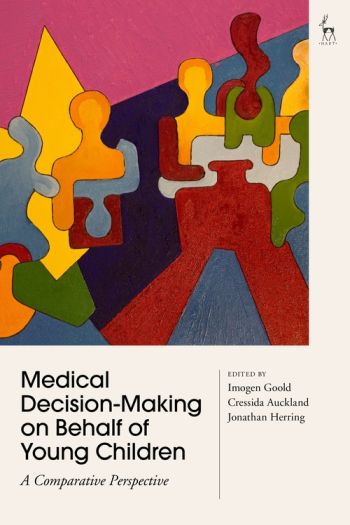We are now closed for the Christmas and New Year period, returning on Monday 5th January 2026. Orders placed during this time will be processed upon our return on 5th January.

In the wake of the Charlie Gard and Alfie Evans cases, a wide-ranging international conversation was started regarding alternative thresholds for intervention and the different balances that can be made in weighing up the rights and interests of the child, the parent's rights and responsibilities and the role of medical professionals and the courts. This collection provides a comparative perspective on these issues by bringing together analysis from a range of jurisdictions across Europe, North and South America, Africa and Asia.
Contextualising the differences and similarities, and drawing out the cultural and social values that inform the approach in different countries, this volume is highly valuable to scholars across jurisdictions, not only to inform their own local debate on how best to navigate such cases, but also to foster inter-jurisdictional debate on the issues.
The book brings together commentators from the fields of law, medical ethics, and clinical medicine across the world, actively drawing on the view from the clinic as well as philosophical, legal and sociological perspectives on the crucial question of who should decide about the fate of a child suffering from a serious illness. In doing so, the collection offers comprehensive treatment of the key questions around whether the current best interests approach is still appropriate, and if not, what the alternatives are. It engages head-on with the concerns seen in both the academic and popular literature that there is a need to reconsider the orthodoxy in this area.